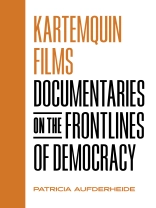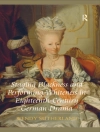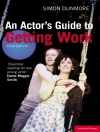How filmmaker-philosophers brought the dream of making documentaries and strengthening democracy to award-winning reality—with help from nuns, gang members, skateboarders, artists, disability activists, and more.
The evolution of Kartemquin Films—Peabody, Emmy, and Sundance-awarded and Oscar-nominated makers of such hits as
Hoop Dreams and
Minding the Gap—is also the story of U.S. independent documentary film over the last seventy years. Patricia Aufderheide reveals the untold story of how Kartemquin developed as an institution that confronts the brutal realities of the industry and society while empowering people to claim their right to democracy.
Kartemquin filmmakers, inspired by pragmatic philosopher John Dewey, made their studio a Chicago-area institution. Activists for a more public media, they boldly confronted in their own productions the realities of gender, race, and class. They negotiated the harsh terms and demands of commercial media, from 16mm through the streaming era, while holding fast to their democratic vision. Drawing on archival research, interviews, and personal experience, Aufderheide tells an inspiring story of how to make media that matters in a cynical world.
表中的内容
Contents
List of Figures
1. Kartemquin Films: A Shared Story
2. How Kartemquin Thinks
3. Cinematic Social Inquiry, 1962–1970
4. Feminist Voices and Revolutionary Cinema, 1970–1978
5. Confronting Neoliberalism with Workers’ and Women’s Stories, 1978–1985
6. Kartemquin in the Filmmaker Public: Making Not Just Media but the Media Landscape
7. Filmmakers Become Artists, Art Becomes Experience, and Hoop Dreams Changes Everything,
1985–1995
8. Making Broadcast and Cable Stories with Integrity, 1995–2008
9. Becoming a Media Arts Organization, 2008–2022
10. Crisis to Crisis
11. Documentary for Democracy?
Acknowledgments
Appendix: Interviews
Notes
Further Reading
Filmography
Index
关于作者
Patricia Aufderheide is University Professor of Communication Studies at American University in Washington, D.C. An award-winning scholar and journalist, she is also author of, among other books, Documentary Film: A Very Short Introduction.












